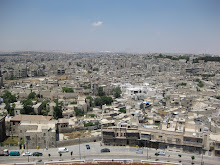*イスラーム原理主義の「道しるべ」 : 発禁・"アルカイダの教本"全訳+解説 / サイイド・クトゥブ著 ; 岡島稔, 座喜純訳・解説معالم في الطريق / سيد قطب
*ジハードとフィトナ : イスラム精神の戦い / ジル・ケペル著 ; 早良哲夫訳,Fitna : guerre au cœur del'islam,Kepel, Gilles
*アル・カーイダと西欧 : 打ち砕かれた「西欧的近代化への野望」 / ジョン・グレイ著 ; 金利光訳,Al Qaeda and what it means to be modern, Gray, John
*America in an Arab mirror, Kamal Abdel-Malek
*統治の諸規則 / アル=マーワルディー著 ; 湯川武訳 الأحكام السلطانية والولايات الدينية أبو الحسن الماوردي
*シャリーアによる統治 : イスラーム政治論 / イブン・タイミーヤ [著] ; 湯川武, 中田考共訳السياسة الشريعة, أحمد ابن تيمية
*加藤博『イスラム世界論』
*羽田正『イスラーム世界の創造』
*نقد الخطاب الديني, نصر حامد أبو زيد (لكن لا يوجد في مكتبة جامعتي...للأسف
*酒井啓子編『民族主義とイスラーム』
If I find time,
*テヘランでロリータを読む / アーザル・ナフィーシー著 ; 市川恵里訳, Reading Lolita in Tehran
Done
*池内恵『イスラーム世界の論じ方』
*山内昌之『イスラームと日本政治』
*片倉邦雄『アラビスト外交官の中東回想録』
*森孝一『EUとイスラームの宗教伝統は共存できるか』
*Islam, Malise Ruthven (I like the author's attitude)
